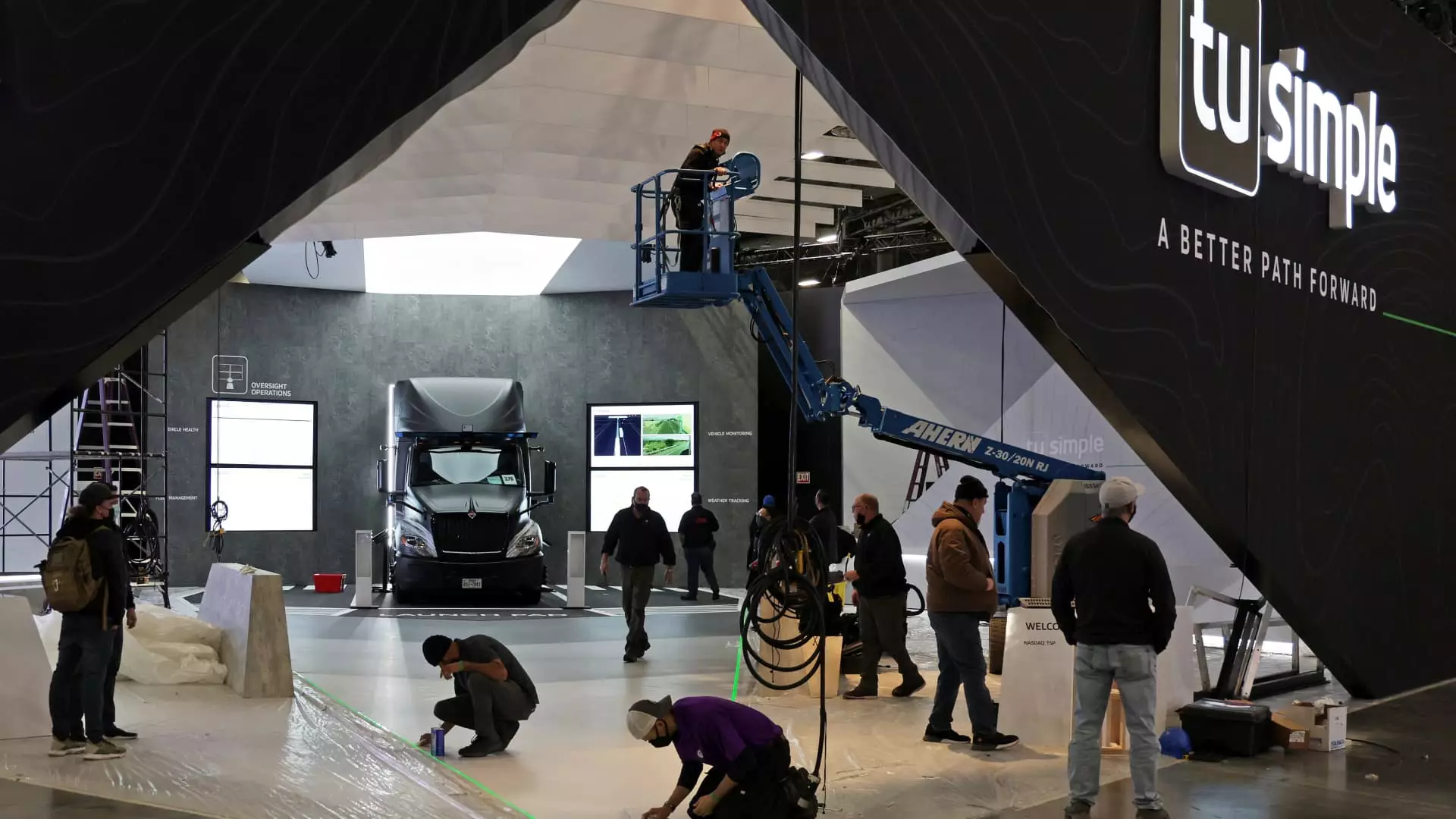The journey of TuSimple, a company once at the forefront of autonomous trucking, has taken an unexpected turn, leading to its rebranding as CreateAI. This shift reflects broader industry trends, notably the decline of self-driving startups amid heightened challenges and an evolving tech landscape. As the company pivots towards video games and animation, it illustrates both the risks faced by tech enterprises and the potential for innovation when navigating adversity.
The Landscape of Autonomous Driving: A Changing Tide
TuSimple had made waves in the autonomous trucking sector by bridging the gap between the U.S. and China markets. However, the environment for self-driving companies has become increasingly inhospitable. Notably, the recent dissolution of General Motors’ Cruise robotaxi division underscores the turbulent state of the industry, with several startups either struggling to survive or falling by the wayside. For TuSimple, the complications only amplified; the company faced safety concerns regarding its vehicles, a hefty $189 million in settlements related to a securities fraud lawsuit, and a critical delisting from the Nasdaq earlier this year.
This confluence of challenges has compelled the company to rethink its identity and purpose. With Cheng Lu back at the helm as CEO—having been removed previously—there’s a renewed focus on potentially stabilizing the company by 2026, primarily through an ambitious video game initiative. The pivot to entertainment, as highlighted by the adaptation of Jin Yong’s renowned martial arts novels into gaming format, represents both a departure from its former business model and an embrace of an emerging market with promising growth potential.
Cheng’s optimism for a successful transformation hinges not only on the release of the video game counterpart to Jin Yong’s stories but also on projected financial gains expected to follow. Anticipating potential revenue streams of “several hundred million” in 2027 from the full version’s launch situates CreateAI as a contender in an increasingly competitive space where intellectual property can drive significant income.
Investing heavily in research and development, TuSimple spent an astonishing $164.4 million in the first three quarters of 2023 alone. Despite reporting a loss of $500,000 in this same timeframe, the strategic focus on generative AI—an area powering innovations like OpenAI’s ChatGPT—positions the company to potentially leverage its autonomous driving expertise toward novel applications in video games and animation. This illustrates an intriguing paradigm shift where technology once reserved for enhancing transportation might endanger established formats within the entertainment sector.
The unveiling of CreateAI’s initial major AI model, Ruyi, adds another layer to this rebranding effort. By making Ruyi an open-source model for visual work accessible on platforms like Hugging Face, CreateAI aims to tap into the flourishing community of AI developers and content creators. However, transitioning from a technology driven by transportation logistics to one centered around artistic expression and game design presents unique sets of challenges.
Beneath the surface, the company must grapple with investor expectations, market competition, and operational logistics. As Cheng notes, increasing the workforce to approximately 500 employees will demand not only additional financial resources but also strategic hiring to ensure the right blend of skills to navigate the entertainment space.
Additionally, the repercussions of U.S. policies restricting access to advanced semiconductors for Chinese businesses present an undeniable hurdle. Although Cheng asserts that CreateAI utilizes a mix of cloud computing from various providers, the long-term viability of this approach remains uncertain in a technology ecosystem that increasingly emphasizes security and competitive advantages.
A New Chapter Beckons
CreateAI’s transformation represents a significant pivot driven by necessity in a rapidly evolving economic landscape. As it strides towards a new identity within the realms of video games and animation, the company’s future will likely depend on its capacity to innovate while managing the complexities of a more competitive environment. The industry will certainly be watching to see if this once-embattled trucking enterprise can successfully navigate the complexities of creative technology and emerge as a leader in an entirely different sector. As they embark on this new journey, the combination of adaptive strategy and technology will be crucial in redefining their narrative and fulfilling the ambitious vision Cheng has laid out.


Leave a Reply